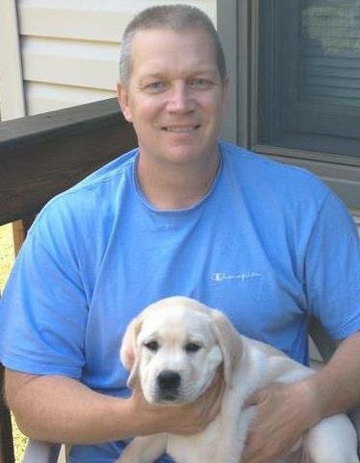To close out Kidney Awareness Month, Valeda asked our Clinical Pharmacist Marisa Postava to interview someone who is currently living with CKD. She chose to interview her father Michael Postava, Sr. Mr. Postava is a United States Marine Corps Veteran as well as a Former Law Enforcement Officer. He was able to teach us firsthand how patients cope with CKD and the changes that are necessary to maintain a healthy lifestyle and live life to the fullest.

Interview with Michael Postava, Sr. United States Marine Corps Veteran; Former Law Enforcement Officer. Performed by Marisa Postava, PharmD at Valeda Rx.
1. How did you find out that you had Chronic Kidney Disease?
I got a letter from the government about 12 years ago saying I was exposed to contaminated drinking water when I was in the Marines at Camp Lejeune. The letter told me I was at a higher risk for things like kidney cancer, bladder cancer, leukemia, neurologic diseases, among other illnesses. So, I told my doctor about the letter I received, and I had some tests done showing elevated creatinine and microscopic traces of blood in my urine. Last year I had a kidney biopsy done and I have been screened for bladder cancer twice, both of which came back negative. Since those tests came back negative, with my elevated creatinine and urinalysis, my doctor told me presentation is consistent with chronic kidney disease.
2. What lifestyle modifications have you had to make?
I had to go on a low protein diet. Initially, the diet caused me to lose close to 20 pounds and I feel hungrier that I used to throughout the day. With COVID, I couldn’t get into see a nutritionist easily, so I looked online and found a diet that was harder to adhere to and it made me feel weak because I was only allowed to eat 20 grams of protein a day. At my last check up, I saw a nutritionist and they told me to increase my protein and talk to my nephrologist about the increase, since I’m an active person. They are most concerned about eating protein coming from animal products. Now, I get about 50 grams of protein a day and I try to keep it there if I can. I feel much better than when I first did, but I’m not sure if it’s the increase in protein or that I’m adjusting to the lower protein diet in general. Right now, that’s all I have to do. I also have to monitor my blood pressure because high blood pressure can damage your kidneys more, but fortunately for me it isn’t high.
3. How has your diagnosis impacted your daily life?
Sometimes I have to take a break doing things like lifting or yard work which I didn’t have to do before, but it may just be that I’m getting older which is part of it too. I think it could be a combination of both. My doctor said there are millions of people walking around with CKD that don’t know they have it. Before this, I never even felt badly! They told me that most people won’t feel badly until it’s too late and very serious, irreparable damage had been done. My doctor told me high blood pressure is one of the worst things for your kidneys and I have to monitor it just to make sure it doesn’t elevate because then I’ll go on medication. In the past, I was never a big water-drinker, but I try to drink 64 oz of water a day if I’m not doing anything strenuous. I’ll drink more if I’m more active that day. I was initially worried I would have to decrease my physical activity but it at least in terms of running, it seems you don’t need to decrease your runs unless you’re training for marathons which, I don’t come close to running three miles three times a week.
4. How can healthcare professionals help you navigate your Chronic Kidney Disease?
For me, my physician has told me all the changes I needed to make and where he predicts my kidney function will be in the future. They have been great at keeping me informed and monitoring my lab work. My kidney function has improved the last two times I went to the doctor since making these lifestyle changes. At this rate, they don’t think I will need any serious interventions in the future as long as I keep up with my lifestyle changes and watch my blood pressure. Keeping me informed and letting me know what changes I can make has made the biggest difference for me and really slowed the progression of my kidney disease.
Mr. Postava shows that living with CKD is manageable if you implement the necessary changes advised by your healthcare professional-take your medications every day as directed, adhere to the diet provided by your nutritionist, drink water, and stay active to your best ability. These few lifestyle changes can help everyone live their lives to their healthiest potential.
About Valeda Rx
Valeda Rx is an independent national specialty pharmacy, servicing all 50 US States and the District of Colombia. We are focused on improving the care for patients living with complex and chronic conditions such as Hepatitis C, HIV, Multiple Sclerosis, Rheumatoid Arthritis, Psoriasis, Crohn’s, Oncology Diseases and more. Our Care Team puts patients’ needs first, treating each as though they were part of our own family.
By working together to coordinate the right medication for the right therapy at the right time for our patients, we support and guide the improvement of patient outcomes. Whether you are a patient, caregiver, prescriber or partner, you will receive the type of independent care and attention and service you not only need, but that you also deserve.
